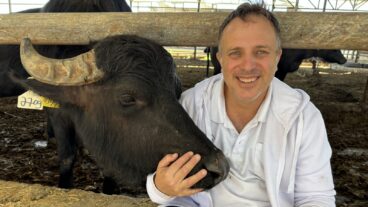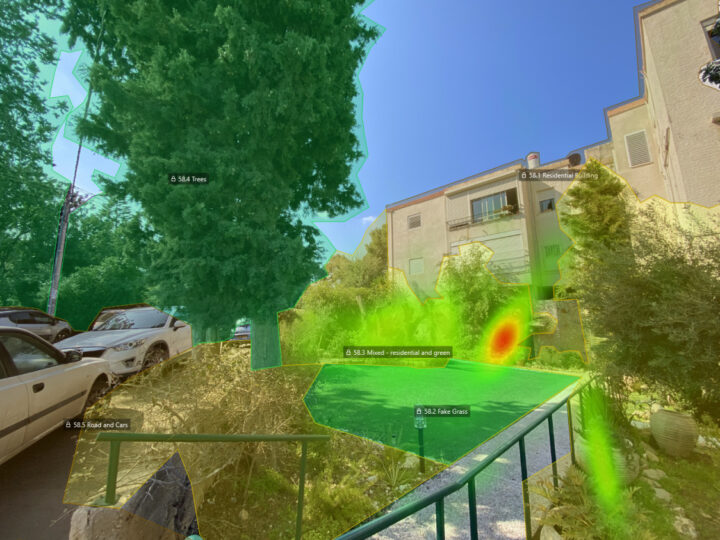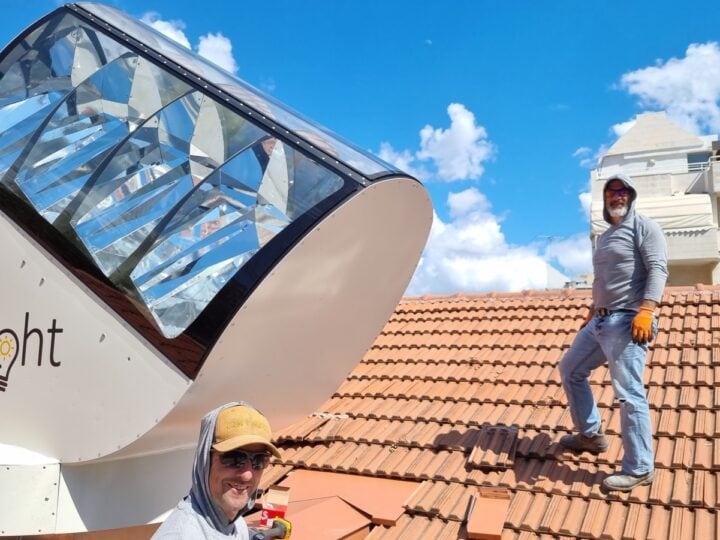“Yesterday we lost 300 acres in the Balam forest, probably around 17 to 20 percent of the forest, burned. The Naftali mountains, we’ve lost probably 80% of the forest. Nabi Yusha [forest], also 80% of the forest burned. Fires in the Biriya probably got somewhere around 12%, but it’s a 6,000-acre forest, which is the biggest one that we have in the Galil.”
Itamar Katz — head forester of the Golan Heights for Keren Kayemeth LeIsrael – Jewish National Fund (KKL-JNF) — gives only a partial list of the damage that has been done so far by the forest fires that are wreaking havoc in the north of Israel.
For weeks, fires have raged there as the result of rockets fired from Lebanon into Israel by Hezbollah forces, some of which have also threatened the often empty local towns and villages, which were evacuated after October 7.
Every day, Katz and other foresters – who are only equipped and permitted to assist with the extinguishing efforts in the forests and open natural areas – work alongside the national fire brigade, fighting to keep the situation under control.
That task is proving to be a huge challenge — especially considering that fighting massive forest fires is only a marginal part of what foresters are expected to do.
Face to face with the inferno
“We’re stretched pretty thin. I mean, we’re foresters: we’re trained to fight only open-area fires, but that’s not even our main job. We maintain, we plant, we trim, we thin the forest,” Katz elaborates.
“Part of what we do is fight fires in the summer, but I don’t think it’s ever been on this scale. “In 2021, we got three fires in the Galilee that were altogether 2,500 acres. But that was three fires over a month and a half. And now we’ve had all that area burned in one day.”
He explains that, though KKL foresters have been preparing for the inevitable disaster that the rising tensions in the north heralded, those preparations could only go so far.
“All of us knew this was going to happen. We were as prepared as we could be but there’s so much grasslands. The Golan Heights is like 85% grasslands, and they all have cattle on them. This is people’s livelihood, and you’re not gonna go burn them ahead of time, because you’re gonna burn somebody’s livelihood,” he tells ISRAEL21c.
“All you’re left to do is just to try to fight and chase these fires,” he says.
“It’s so close to the [Lebanese] border that most of the time, KKL wouldn’t even let us go help because it’s too dangerous.”
For this reason, the fire brigade is the organization calling the shots in the campaign against the inferno.
“They’re much better at it and they’re the ones running the show — we come to help them, and if we’re by ourselves, then we’re trained to kind of cope with the situation alone. But at the end, once they arrive, we do whatever we’re asked to do. And they seem pretty well prepared. I take my hat off to them. They’re in an impossible situation.”
Spread thin against a growing threat
Still, the foresters are putting themselves at risk every day in order to preserve the country’s forests.
“We work seven days a week, pretty much 24 hours a day if they need us. We try not to work at night, but sometimes there’s no other choice,” Katz says.
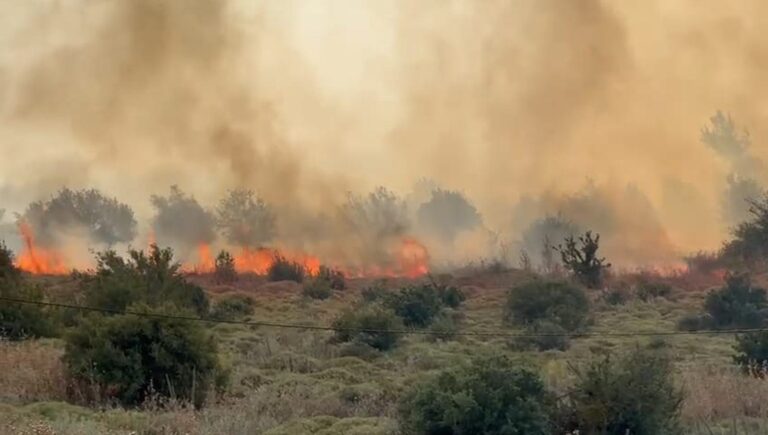
“We’re trying to be as safe as possible, but at the end of the day, you either go out and fight the fire or you don’t. And when you’re there, you try to do the best you can. Some days we even get huge tractors from the army just to [dig trenches] to try to stop it, but it just— it grows so fast. And we’ve had this crazy, extremely dry weather… It pains me just to talk about it. I get goosebumps,” Katz admits.
“And we don’t always succeed: we have fires going on for three, four, five days, and just as we think we caught it, a gust of wind comes and it jumps some road or splits up again on the borders, and we just find ourselves at square one again,” he says.
“Some days you fight a fire and you’re sure it’s done, and the next day they shoot a rocket, and —” he pauses for a moment as a morbid chuckle forces its way out of him; “— 20 meters from where you finished yesterday, you start today.”
Fighting fires while under fire
Aside from the constant threat of being overtaken by fire, the fighters always have to remain vigilant for incoming rockets.
“The craziest thing is, sometimes you’re fighting a fire and suddenly sirens go off,” he says. “And as if we’re not hot enough, now we need to put on a protective vest and a helmet and lie on the ground.”
He adds that, ironically, one of the key propagators of the forest fires is not actually the missiles launched by Hezbollah; it’s the Iron Dome anti-missile projectiles that Israel launches to stop them.
“The rockets that it shoots chase a missile that’s coming in, and they explode really close to it, and destroy the missile. The problem is, it creates so much debris, that instead of getting one fire in one spot, you get this huge spread in six, seven, 10 spots.”
“And when they shoot 30 or 40 Iron Dome rockets, your starting point is horrible: you start off with a fire that would usually take around an hour to become that big.”
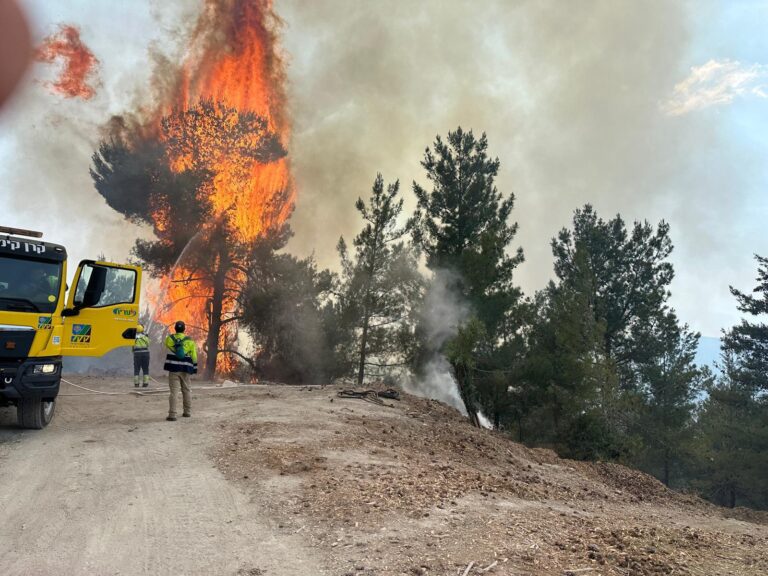
Katz emphasizes that, considering these fires are the result of pre-war potshots, the fires will only get worse as escalations between Israel and Hezbollah continue to heat up.
“Nobody has declared a war in the north yet, and already three times more acres burned than the war in 2006. I don’t know what’s going to happen when it starts. It’s going to be crazy. There are going to be many more fires than fire trucks.”
A lifetime’s work, up in smoke.
Katz describes the turmoil that many veteran foresters are facing as a result of seeing years of hard work go up in smoke.
“I look at the older generation in KKL and you just see… I mean, they don’t tear up because they’re kind of tough guys, but it’s a whole life’s work. My boss was the forester of the Biriya forest; he was the guy behind the whole project renewing the forest after 2006, and so much of his work burned,” he says.
“Now he’s the regional manager and he’s gonna have to do it again; but it’s not a one-, two- or five-year process. Damage at this scale… It’s like a 15-year plan to renew all of this.”
Asked what gives him the hope necessary to continue pushing back the surging fires each day, Katz sighs.
“What’s keeping me out there is that if I’m not going to be there, nobody’s going to be there. I mean, it’s part of our jobs. We knew that.”
And then, audibly bracing himself, he adds, “We need to start thinking about next year. We’re going to replant it in the end.”












